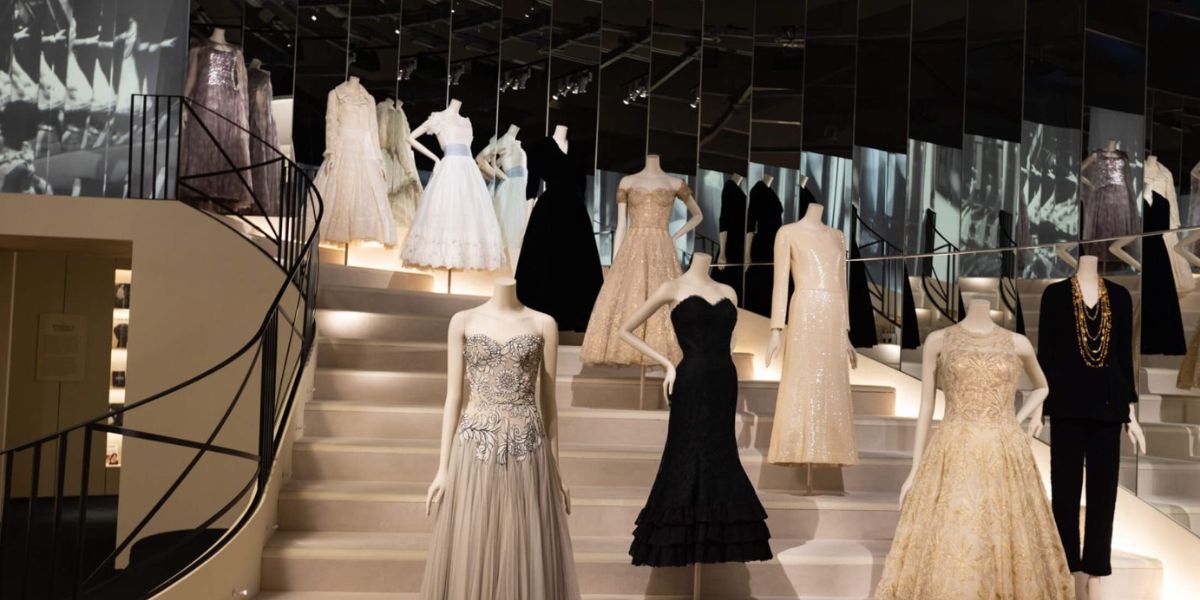The Revolutionary Designer and Entrepreneur
To understand Coco Chanel’s influence on fashion, it is essential to recognize her as a revolutionary designer and entrepreneur. Coco Chanel is known for transforming women’s fashion in the early 20th century. Chanel established her brand, Chanel, in 1910, introducing a new aesthetic that emphasized comfort, elegance, and simplicity. Chanel’s work resulted in a departure from the restrictive garments of the Victorian era, introducing styles that allowed women more freedom and expression.
Iconic Fragrances and Timeless Pieces
Chanel is renowned for the iconic Chanel No. 5 perfume, launched in 1921, which became one of the best-selling fragrances globally due to its unique floral and aldehyde blend and simple bottle design reflecting Chanel’s fashion philosophy. Additionally, Coco Chanel popularized the little black dress in 1926, creating a versatile and timeless staple that blended elegance with functionality, allowing women to feel beautiful and comfortable.
Menswear Inspiration and Practicality
Chanel’s introduction of menswear-inspired clothing for women marked another significant shift in fashion. The use of tailored suits, trousers, and comfortable fabrics in women’s clothing offered an alternative to the traditionally feminine styles that dominated the fashion landscape. Her tweed suits became a symbol of sophisticated and liberated femininity, emphasizing the importance of practicality without sacrificing style. Chanel is renowned for her use of jersey fabric. Initially used for men’s underwear, she recognized its comfort and versatility, applying it to women’s fashion. This innovative approach allowed for more fluid designs and challenged the prevailing notions of luxury fabric. The introduction of jersey fabric contributed to the rise of casual chic, further establishing Chanel’s influence in modern fashion.
Accessorizing with Boldness
Chanel’s bold use of costume jewelry also revolutionized the accessory market. She famously declared, “Before you leave the house, look in the mirror and take one thing off.” This advice encouraged women to accessorize thoughtfully, elevating their outfits without overwhelming them. The combination of pearls, chains, and bold earrings in her designs demonstrated that accessories could make a powerful statement.
Marketing and Brand Identity
Coco Chanel’s approach to branding and marketing set a precedent for future fashion designers. She understood the importance of a strong brand identity and leveraged her personal image to promote her designs. The interlocking “CC” logo became synonymous with luxury and style, representing the ethos of her brand. Chanel’s marketing strategies helped to establish a strong connection between her designs and the lifestyle she embodied.
Empowering Women through Fashion
Chanel is credited with democratizing fashion. By focusing on functionality and style, she made high fashion accessible to a broader audience. Her emphasis on comfort and practicality resonated with women seeking freedom from traditional constraints. Chanel’s designs challenged societal norms and empowered women to express their individuality through fashion. Her influence extended beyond clothing to include the world of beauty. Her emphasis on skincare and makeup created a holistic approach to femininity. Chanel believed that beauty should be simple and accessible. Her skincare products and makeup lines, including the iconic Chanel lipstick, continue to be popular worldwide.
Lasting Legacy and Inspiration
Coco Chanel’s legacy is evident in contemporary fashion. Designers such as Karl Lagerfeld, who served as the creative director of Chanel from 1983 until his passing in 2019, built upon her foundational principles while introducing modern elements. The essence of Chanel’s vision persists in today’s fashion landscape, as many designers draw inspiration from her pioneering spirit. Chanel’s life story is also a testament to her resilience. Born in poverty in 1883, she faced numerous challenges before achieving success. Her determination and innovative thinking allowed her to rise above her circumstances. Chanel’s journey from a small-town girl to a global fashion icon serves as an inspiration for aspiring designers and entrepreneurs.
Conclusion: A Symbol of Liberation
Coco Chanel passed away in 1971, but her impact on fashion remains profound. Her ability to blend style with comfort revolutionized the way women dress. Chanel’s designs continue to be celebrated on runways worldwide, influencing trends and inspiring future generations. The timeless quality of her work exemplifies the importance of innovation and individuality in fashion. Chanel’s contributions to the fashion industry have earned her a place in history as a transformative figure. To understand Coco Chanel’s influence on fashion is to recognize her as a symbol of liberation for women. Her vision transcended mere clothing; she redefined femininity and empowered women to embrace their identities through style.
In conclusion, Chanel’s legacy lives on in the fashion industry, influencing designers and inspiring women everywhere. Her work exemplifies how fashion can reflect cultural shifts and societal changes. Chanel’s story is one of empowerment, creativity, and innovation, making her a true icon of modern fashion.

